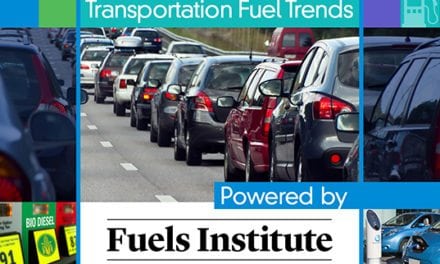By Michael Taylor
More public and private vehicle fleets are considering a move to alternative fuels, like propane autogas, than ever before. Clean fuels help companies meet emissions benchmarks and position themselves to customers within their communities as mindful of the local environment.
But occasionally, decision-makers incorrectly think the move to alternative fuel comes by sacrificing the costs and convenience of other fuels.
Fortunately, there’s one alternative fuel — propane autogas — that is providing reduced emissions along with the cost savings and convenience fleet owners require of their fleet fuel today.
Propane autogas is recognized as the proven solution for fleets seeking reduced emissions, with new medium-duty propane autogas engine technology dramatically reducing harmful emissions like nitrogen oxide (NOx) and greenhouse gases. But the fuel is also providing serious cost savings over the lifetime of the vehicle. Several factors contribute to propane autogas’s low total cost-of-ownership, including reduced fuel and maintenance costs, and accessible infrastructure.
Fuel
Propane autogas makes it easier for fleets to manage annual fuel budgets and cost objectives. The cost of wholesale propane falls between the price of oil and natural gas — the fuel’s two sources — making propane autogas consistently less expensive than traditional fuels. On average, it costs as much as 50 percent less than gasoline and diesel.
Unlike electric vehicles, propane autogas fleets are protected from the wide variation in kilowatt-hour costs caused by demand pricing and on-peak rates applied in parts of the United States. This can sharply raise utility bills if electric vehicles are not charged during off-peak hours.
Maintenance and garaging
Another major advantage in using propane autogas is what the fuel doesn’t need added fluids and filters, which is a necessary and costly expense for other fuels, such as diesel. The engine systems for propane autogas are less complex and burn clean, eliminating the need for additional parts and fluids that can contribute to unexpected repairs and downtime.
It’s highly likely that fleets adding propane autogas vehicles won’t need to make costly modifications or upgrades to maintenance or garaging facilities, as can be the case with other alternative fuels like CNG. In fact, if buildings are code compliant for diesel and gasoline, there are often no infrastructure changes required. Segregation of major and minor repairs is not required either. Facility managers should always check with their local Authority Having Jurisdiction. .
Flexible refueling options
Affordable and scalable refueling infrastructure is another reason propane autogas vehicles boast the lowest total cost-of-ownership of any fuel. Fleet managers can choose from several propane autogas refueling options that allow fleets to create a tailored program to specifically fit their needs:
- A standard or advanced private station can be perfect for fleets both small and large that require a centralized refueling station, with site preparation requiring only crash protection and electrical for dispensers, and the option to lease or own fuel tanks and dispensers. These options can easily expand with the growth of a fleet.
- Public or private refueling stations can provide another solution for propane autogas fleets or fleets with limited space. With a 24/7 card lock system, fleets can maintain records for each vehicle. A list of stations nationwide can be found here.
- A fuel storage tank and dispenser mounted on a trailer may even provide a temporary refueling solution for fleets in the process of installing permanent infrastructure, or on a long-term job site.
- For fleets with limited space for on-site infrastructure in the long term, mobile refueling is a good solution. In this scenario, the fleet’s propane provider arrives on-site in a bobtail and refuels the fleet vehicles one by one.
With all the combined savings, some fleets have observed a complete return on their investment in as little as two to three years or less.. Sales of propane autogas are predicted to grow as more fleets realize the cost savings that come with the fuel, and as technology continues to expand the use of the fuel to even more vehicle applications. To learn more about the benefits of using propane autogas vehicles, visit propane.com/on-road-fleets.
 Michael Taylor is the director of autogas business development for the Propane Education & Research Council. He can be reached at [email protected].
Michael Taylor is the director of autogas business development for the Propane Education & Research Council. He can be reached at [email protected].









